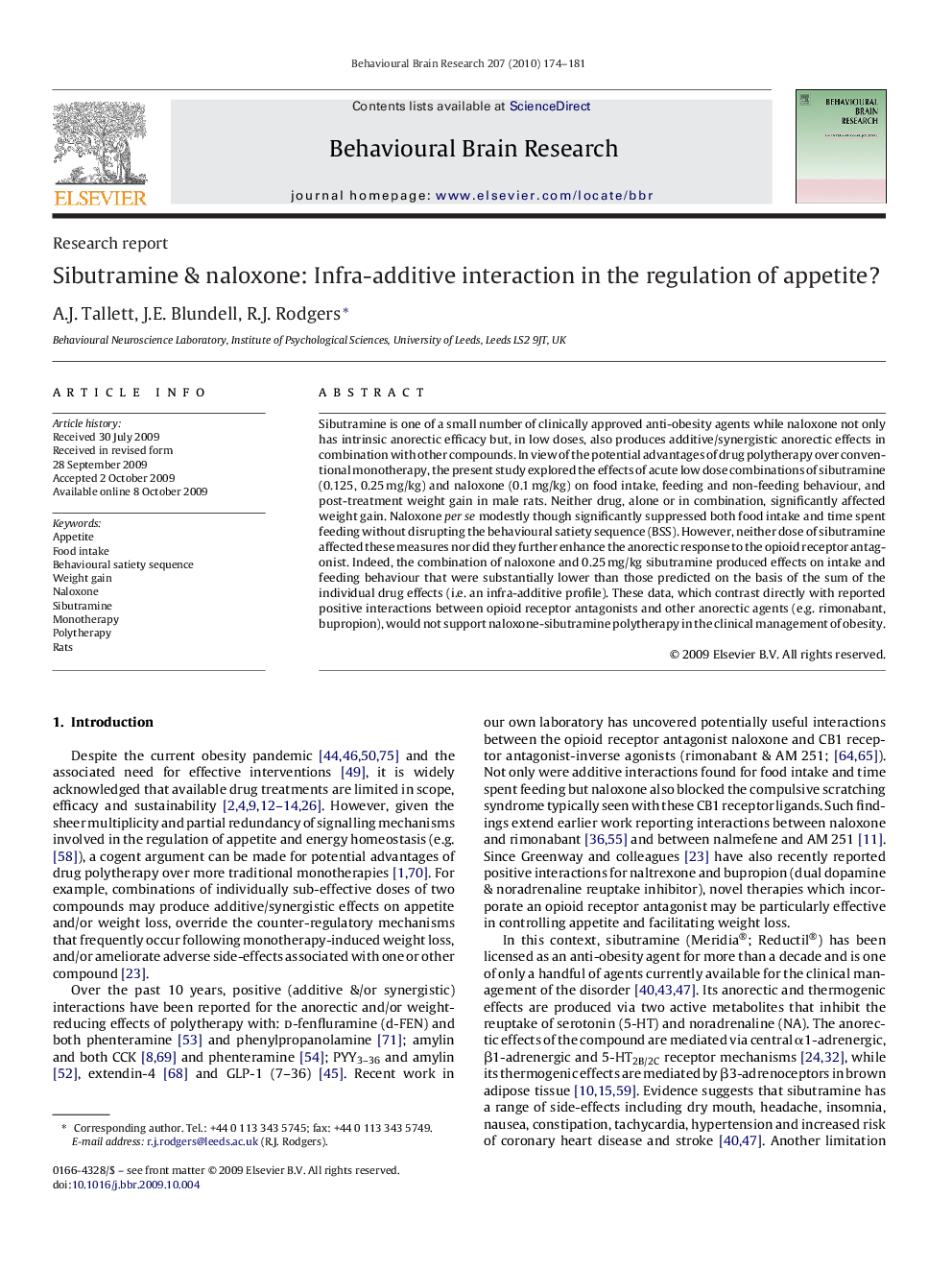| Article ID | Journal | Published Year | Pages | File Type |
|---|---|---|---|---|
| 4314340 | Behavioural Brain Research | 2010 | 8 Pages |
Sibutramine is one of a small number of clinically approved anti-obesity agents while naloxone not only has intrinsic anorectic efficacy but, in low doses, also produces additive/synergistic anorectic effects in combination with other compounds. In view of the potential advantages of drug polytherapy over conventional monotherapy, the present study explored the effects of acute low dose combinations of sibutramine (0.125, 0.25 mg/kg) and naloxone (0.1 mg/kg) on food intake, feeding and non-feeding behaviour, and post-treatment weight gain in male rats. Neither drug, alone or in combination, significantly affected weight gain. Naloxone per se modestly though significantly suppressed both food intake and time spent feeding without disrupting the behavioural satiety sequence (BSS). However, neither dose of sibutramine affected these measures nor did they further enhance the anorectic response to the opioid receptor antagonist. Indeed, the combination of naloxone and 0.25 mg/kg sibutramine produced effects on intake and feeding behaviour that were substantially lower than those predicted on the basis of the sum of the individual drug effects (i.e. an infra-additive profile). These data, which contrast directly with reported positive interactions between opioid receptor antagonists and other anorectic agents (e.g. rimonabant, bupropion), would not support naloxone-sibutramine polytherapy in the clinical management of obesity.
